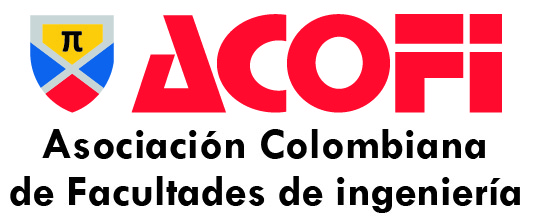Preliminary review of two curricular Civil Engineering programs in Bogotá - Colombia.
DOI:
https://doi.org/10.26507/rei.v15n29.1077Keywords:
infrastructure, sustainable development, innovation, civil engineering, curricular programs, curricular mesh.Abstract
This article analyzes the trends in innovation and infrastructure of two curricular Civil Engineering programs, one of a public nature and the other of a private nature, which are offered in Bogotá - Colombia. The theoretical references and background that support this review are framed in number nine (9) of the millennium goals that refer to “infrastructure for sustainable development”. The type of research is of a descriptive qualitative nature and the established sample are the programs A and B offered. The methodology addressed is developed in five (5) phases described below: a) review of subjects that enhance pedagogical processes in students, b) sequence of progression of competencies, c) subjects that encourage the development of competencies, d) update of the program and curriculum mesh and e) production of achievements of the curricular programs. Finally, the respective conclusions about this subject are presented.
Downloads
References
International Organization for Standarization. Sistemas de gestión de la calidad – Requisitos. Suiza, 2015.
Bettalanffy, L., Teoría General de los Sistemas. Fundamento, desarrollo y aplicaciones. Fondo de cultura económica. ISBN 986-16-0627-2, 1968.
Lemaitre, M.J., y Zenteno, M.E., Aseguramiento de la calidad en Iberoamérica. Educación Superior–Informe 2012, 2012.
Madrid, R., El derecho a la libertad de cátedra y el concepto de universidad. Revista Chilena de Derecho, 40(1), pp. 355-371, 2013.
Sthenhouse, L., Investigación y desarrollo del currículo. Morat Ed., Madrid, España. ISBN: 84-7112-220-0, 1991.
Sutcliffe, N., Sutcliffe, N., Chan, S.S. and Nakayama, M., Competency Based MSIS Curriculum. Journal of Information Systems Education, 16(3), pp. 301-310, 2005.
Tobón-Tobón, S., Formación basada en Competencias, pensamiento complejo, diseño curricular y didáctica. Ecoe Eds., Bogotá Colombia, 2004.
Argüelles, A., Competency based education and training: a world perspective. Editorial Limusa, 2000. DOI: 10.1108/jwl.
Sudsomboon, W., Construction of a competency-based curriculum content framework for mechanical technology education program on automotive technology subjects. In: Proceedings of the ICASE Asian Symposium, 2007.
Ayarza, H. y González, L.E., (Editores), Diseño curricular basado en competencias y aseguramiento de la calidad en la educación superior. Grupo Operativo de Universidades Chilenas, Centro Interuniversitario de Desarrollo, CINDA, MINEDUC, Santiago, Chile, 2008.
Beneitone, et al., Reflexiones y perspectivas de la educación superior en América Latina. Informe final. ISBN 978-84-9830 -645 -3, 2007.
Catalano, A., de Cols, S. y Sladogna, M., Competencia laboral: diseño curricular basado en normas de competencia laboral: conceptos y orientaciones metodológicas. Banco Interamericano de Desarrollo. 2004. DOI: 10.31619/caledu.n27.217
Vásquez A, et al., Construcción en red de un currículo basado en competencias. Ciencia y Enfermería, 17(3), pp. 35-42, 2011. DOI: 10.4067/S0717
Tardif, J., Développer un programme par compétences: de l’intention à la mise en oeuvre. Pédagogie collégiale, 16(3), pp. 36-44, 2003.
Jacobs, Getting results with curriculum mapping. Association for Supervision and Curriculum Development, ISBN-0-8712-0999-3, Alexandria, Virginia, USA, 2004.
Britton, M., Letassy, N., Medina, M.S. and Er, N., A curriculum review and mapping process supported by an electronic database system. American Journal of Pharmaceutical Education, 72(5), 2008. DOI: 10.5688/aj720599
Fullan, M., Education in motion: leading in a culture of change. Centre for Professional Excellence, 2003. DOI: 10.1177/105268460601600502
Crawley, E.F., Malmqvist, J., Östlund, S., Brodeur, D.R. and Edström, K., Rethinking engineering education, the CDIO approach. Springer International Publishing, Switzerland, 2014, 311 P. DOI: 10.1007/978-3-319-05561-9
Schmal, R., y Ruiz-Tagle, A., Una metodología para el diseño de un currículo orientado a las competencias. Ingeniare - Revista chilena de ingeniería, 16(1), pp. 147-158, 2008. DOI: 77216204
Rivera, J., La formación pedagógica y didáctica de los profesores de ingeniería. En: Aprendizaje por proyectos en Ingeniería Civil. Uniagraria – Fundación Universitaria Agraria de Colombia, 2016.
Downloads
Published
How to Cite
Issue
Section
License
Total or partial reproduction of the documents published in the journal is authorized only when the source and author are cited.
| Article metrics | |
|---|---|
| Abstract views | |
| Galley vies | |
| PDF Views | |
| HTML views | |
| Other views | |









